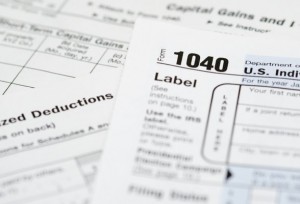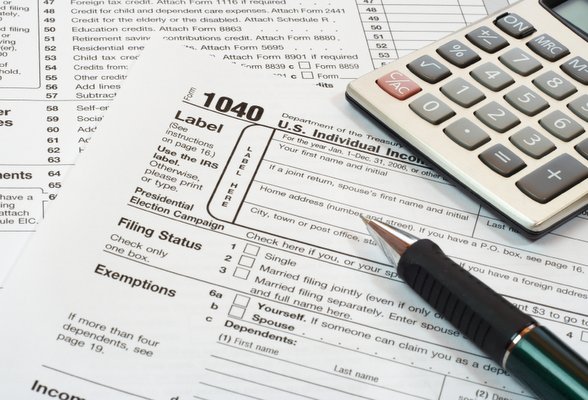IRS names its “Dirty Dozen” tax scams for 2015
February 9, 2015 by admin
Filed under Latest Tax News
Comments Off on IRS names its “Dirty Dozen” tax scams for 2015
WASHINGTON — The Internal Revenue Service wrapped up the 2015 “Dirty Dozen” list of tax scams with a warning to taxpayers about aggressive telephone scams continuing coast-to-coast during the early weeks of this year’s filing season.
The aggressive, threatening phone calls from scam artists continue to be seen on a daily basis in states across the nation. The IRS urged taxpayers not give out money or personal financial information as a result of these phone calls or from emails claiming to be from the IRS.
Phone scams and email phishing schemes are among the “Dirty Dozen” tax scams the IRS highlighted, for the first time, on 12 straight business days from Jan. 22 to Feb. 6. The IRS has also set up a special section on IRS.gov highlighting these 12 schemes for taxpayers.
“We are doing everything we can to help taxpayers avoid scams as the tax season continues,” said IRS Commissioner John Koskinen. “Whether it’s a phone scam or scheme to steal a taxpayer’s identity, there are simple steps to take to help stop these con artists. We urge taxpayers to visit IRS.gov for more information and to be wary of these dozen tax scams.”
Illegal scams can lead to significant penalties and interest for taxpayers, as well as possible criminal prosecution. IRS Criminal Investigation works closely with the Department of Justice (DOJ) to shutdown scams and prosecute the criminals behind them. Taxpayers should remember that they are legally responsible for what is on their tax returns even if it is prepared by someone else. Make sure the preparer you hire is up to the task. For more see the Choosing a Tax Professional page.
For the first time, here is a recap of this year’s “Dirty Dozen” scams:
- Phone Scams: Aggressive and threatening phone calls by criminals impersonating IRS agents remains an ongoing threat to taxpayers. The IRS has seen a surge of these phone scams in recent months as scam artists threaten police arrest, deportation, license revocation and other things. The IRS reminds taxpayers to guard against all sorts of con games that arise during any filing season. (IR-2015-5)
- Phishing: Taxpayers need to be on guard against fake emails or websites looking to steal personal information. The IRS will not send you an email about a bill or refund out of the blue. Don’t click on one claiming to be from the IRS that takes you by surprise. Taxpayers should be wary of clicking on strange emails and websites. They may be scams to steal your personal information. (IR-2015-6)
- Identity Theft: Taxpayers need to watch out for identity theft especially around tax time. The IRS continues to aggressively pursue the criminals that file fraudulent returns using someone else’s Social Security number. The IRS is making progress on this front but taxpayers still need to be extremely careful and do everything they can to avoid becoming a victim. (IR-2015-7)
- Return Preparer Fraud: Taxpayers need to be on the lookout for unscrupulous return preparers. The vast majority of tax professionals provide honest high-quality service. But there are some dishonest preparers who set up shop each filing season to perpetrate refund fraud, identity theft and other scams that hurt taxpayers. Return preparers are a vital part of the U.S. tax system. About 60 percent of taxpayers use tax professionals to prepare their returns. (IR-2015-8)
- Offshore Tax Avoidance: The recent string of successful enforcement actions against offshore tax cheats and the financial organizations that help them shows that it’s a bad bet to hide money and income offshore. Taxpayers are best served by coming in voluntarily and getting their taxes and filing requirements in order. The IRS offers the Offshore Voluntary Disclosure Program (OVDP) to help people get their taxes in order. (IR-2015-09)
- Inflated Refund Claims: Taxpayers need to be on the lookout for anyone promising inflated refunds. Taxpayers should be wary of anyone who asks them to sign a blank return, promise a big refund before looking at their records, or charge fees based on a percentage of the refund. Scam artists use flyers, advertisements, phony store fronts and word of mouth via community groups and churches in seeking victims. (IR-2015-12)
- Fake Charities: Taxpayers should be on guard against groups masquerading as charitable organizations to attract donations from unsuspecting contributors. Contributors should take a few extra minutes to ensure their hard-earned money goes to legitimate and currently eligible charities. IRS.gov has the tools taxpayers need to check out the status of charitable organizations. Be wary of charities with names that are similar to familiar or nationally known organizations. (IR-2015-16)
- Hiding Income with Fake Documents: Hiding taxable income by filing false Form 1099s or other fake documents is a scam that taxpayers should always avoid and guard against. The mere suggestion of falsifying documents to reduce tax bills or inflate tax refunds is a huge red flag when using a paid tax return preparer. Taxpayers are legally responsible for what is on their returns regardless of who prepares the returns. (IR-2015-18)
- Abusive Tax Shelters: Taxpayers should avoid using abusive tax structures to avoid paying taxes. The IRS is committed to stopping complex tax avoidance schemes and the people who create and sell them. The vast majority of taxpayers pay their fair share, and everyone should be on the lookout for people peddling tax shelters that sound too good to be true. When in doubt, taxpayers should seek an independent opinion regarding complex products they are offered. (IR-2015-19)
- Falsifying Income to Claim Credits: Taxpayers should avoid inventing income to erroneously claim tax credits. Taxpayers are sometimes talked into doing this by scam artists. Taxpayers are best served by filing the most-accurate return possible because they are legally responsible for what is on their return. (IR-2015-20)
- Excessive Claims for Fuel Tax Credits: Taxpayers need to avoid improper claims for fuel tax credits. The fuel tax credit is generally limited to off-highway business use, including use in farming. Consequently, the credit is not available to most taxpayers. But yet, the IRS routinely finds unscrupulous preparers who have enticed sizable groups of taxpayers to erroneously claim the credit to inflate their refunds. (IR-2015-21)
- Frivolous Tax Arguments: Taxpayers should avoid using frivolous tax arguments to avoid paying their taxes. Promoters of frivolous schemes encourage taxpayers to make unreasonable and outlandish claims to avoid paying the taxes they owe. These arguments are wrong and have been thrown out of court. While taxpayers have the right to contest their tax liabilities in court, no one has the right to disobey the law or disregard their responsibility to pay taxes. The penalty for filing a frivolous tax return is $5,000. (IR-2015-23)
Additional information about tax scams is available on IRS social media sites, including YouTubehttp://www.youtube.com/irsvideos and Tumblr http://internalrevenueservice.tumblr.com, where people can search “scam” to find all the scam-related posts.
Source: Internal Revenue Service, IR-2015-26, Feb. 9, 2015
Obama abandons proposal to axe college savings plans
January 28, 2015 by admin
Filed under Latest Tax News
Comments Off on Obama abandons proposal to axe college savings plans
 According to the New York Times, the White House said President Obama will back off from his proposal to effectively end “529” college savings accounts. The plan to eliminate the popular program elicited strong negative reactions from both Republican and Democrat politicians, as well as parents.
According to the New York Times, the White House said President Obama will back off from his proposal to effectively end “529” college savings accounts. The plan to eliminate the popular program elicited strong negative reactions from both Republican and Democrat politicians, as well as parents.
White House economists believed taking away the tax advantage of the 529 plan for higher income families was a simple matter of tax fairness. More than 70% of the tax benefits of the current 529 plans goes to families with household incomes of more than $200,000. The concept was to shift the billion-dollar savings over 10 years from ending the 529 plans into the proposed expansion of a new tuition tax credit directed more clearly to the middle class.
However, according to the College Savings Foundation, a consortium of financial institutions backing 529s, close to 10 percent of 529 account holders have incomes below $50,000, and more than 70 percent of the total number of accounts are owned by households with incomes below $150,000. So while the dollars in the plans of those with incomes below $150,000 is much less, the number of families who receive some benefit is quite significant.
Read the full article here.
Image: TaxCredits.net
Illinois delays start of tax filing
January 16, 2014 by admin
Filed under Latest Tax News
Comments Off on Illinois delays start of tax filing
The Illinois Department of Revenue has announced that Illinois taxpayers won’t be able to file their 2013 income taxes until the end of January — a two-week delay.
The delay follows a similar federal postponement. Refunds and the April 15 filing deadline aren’t affected.
The Internal Revenue Service is delaying the start of the tax-filing season because of last year’s government shutdown that furloughed workers who were programming and testing tax-processing systems.
Now, state and federal returns can be filed starting Jan. 31.
Sue Hofer, a spokeswoman for the Illinois Department of Revenue, says the two-week delay isn’t expected to cause problems in Illinois because “very few people file in January anyway.” About 80 percent of Illinois returns were filed electronically in 2013.
Read more here: http://www.sj-r.com/article/20140115/NEWS/140119570/-1/json
IRS announces 2014 filing season delay due to government shutdown
October 23, 2013 by admin
Filed under Latest Tax News
Comments Off on IRS announces 2014 filing season delay due to government shutdown
 WASHINGTON — The Internal Revenue Service today announced a delay of approximately one to two weeks to the start of the 2014 filing season to allow adequate time to program and test tax processing systems following the 16-day federal government closure.
WASHINGTON — The Internal Revenue Service today announced a delay of approximately one to two weeks to the start of the 2014 filing season to allow adequate time to program and test tax processing systems following the 16-day federal government closure.
The IRS is exploring options to shorten the expected delay and will announce a final decision on the start of the 2014 filing season in December, Acting IRS Commissioner Danny Werfel said. The original start date of the 2014 filing season was Jan. 21, and with a one- to two-week delay, the IRS would start accepting and processing 2013 individual tax returns no earlier than Jan. 28 and no later than Feb. 4.
The government closure came during the peak period for preparing IRS systems for the 2014 filing season. Programming, testing and deployment of more than 50 IRS systems is needed to handle processing of nearly 150 million tax returns. Updating these core systems is a complex, year-round process with the majority of the work beginning in the fall of each year.
About 90 percent of IRS operations were closed during the shutdown, with some major workstreams closed entirely during this period, putting the IRS nearly three weeks behind its tight timetable for being ready to start the 2014 filing season. There are additional training, programming and testing demands on IRS systems this year in order to provide additional refund fraud and identity theft detection and prevention.
“Readying our systems to handle the tax season is an intricate, detailed process, and we must take the time to get it right,” Werfel said. “The adjustment to the start of the filing season provides us the necessary time to program, test and validate our systems so that we can provide a smooth filing and refund process for the nation’s taxpayers. We want the public and tax professionals to know about the delay well in advance so they can prepare for a later start of the filing season.”
The IRS will not process paper tax returns before the start date, which will be announced in December. There is no advantage to filing on paper before the opening date, and taxpayers will receive their tax refunds much faster by using e-file with direct deposit. The April 15 tax deadline is set by statute and will remain in place. However, the IRS reminds taxpayers that anyone can request an automatic six-month extension to file their tax return. The request is easily done with Form 4868, which can be filed electronically or on paper.
IRS processes, applications and databases must be updated annually to reflect tax law updates, business process changes, and programming updates in time for the start of the filing season.
The IRS continues resuming and assessing operations following the 16-day closure. The IRS is seeing heavy demand on its toll-free telephone lines, walk-in sites and other services from taxpayers and tax practitioners.
During the closure, the IRS received 400,000 pieces of correspondence, on top of the 1 million items already being processed before the shutdown.
The IRS encourages taxpayers to wait to call or visit if their issue is not urgent, and to continue to use automated applications on IRS.gov whenever possible.
“In the days ahead, we will continue assessing the impact of the shutdown on IRS operations, and we will do everything we can to work through the backlog and pent-up demand,” Werfel said. “We greatly appreciate the patience of taxpayers and the tax professional community during this period.”
Source: IR-2013-82, Oct. 22, 2013


